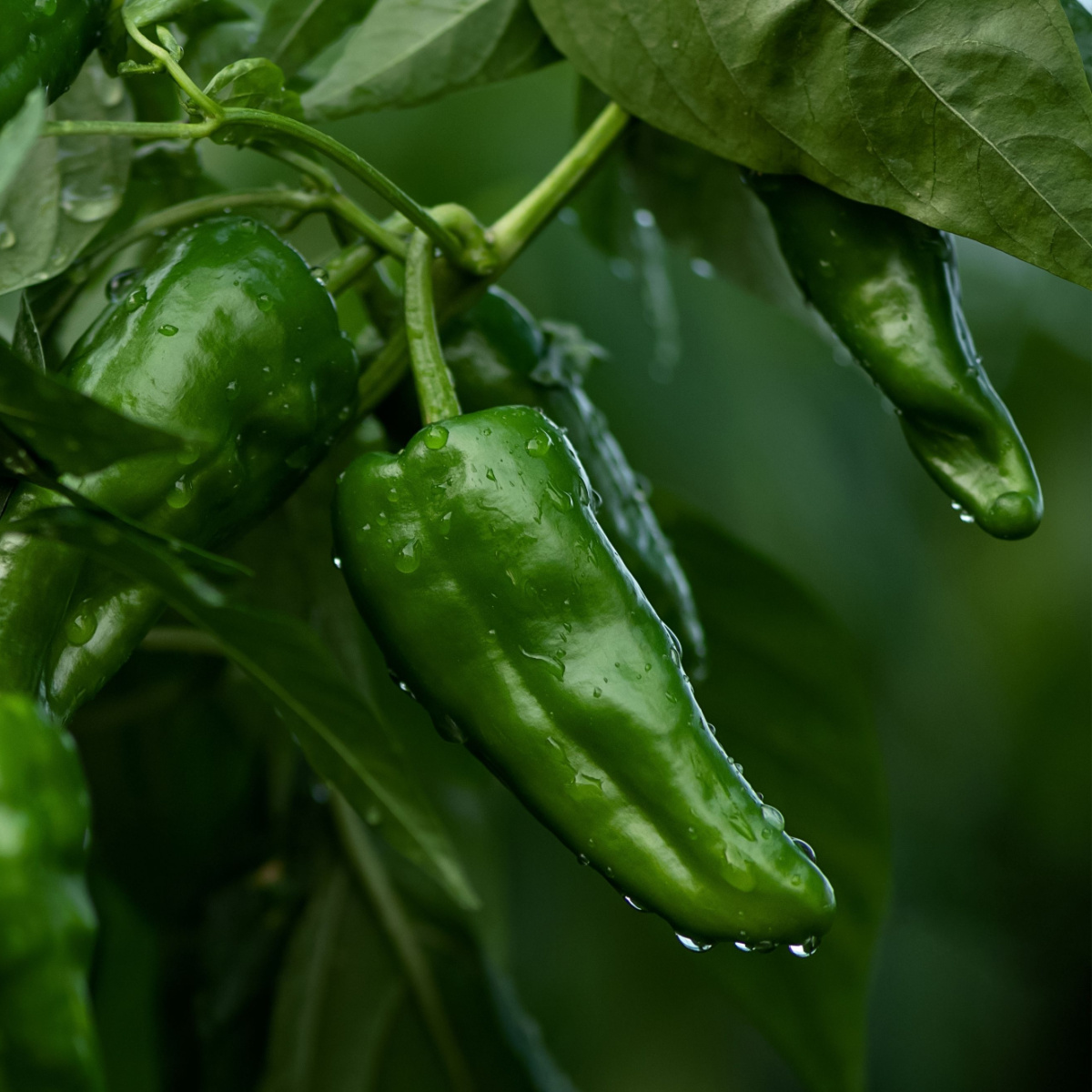Organic Vs. Synthetic Fertilizers: Which Is Best for Supporting Healthy And Balanced Pepper Plants?
In the realm of supporting healthy pepper plants, the selection between natural and synthetic plant foods stands as a pivotal choice with far-ranging ramifications. While both alternatives goal to offer necessary nutrients to sustain plant growth, the nuances of their effect on the dirt, plant health and wellness, and the environment spark a dispute that mirrors throughout the horticulture neighborhood. Comprehending the distinctive advantages and possible mistakes of each fertilizer type is important for pepper farmers looking for to enhance their yields while preserving an eco-conscious and lasting method.
Benefits of Organic Fertilizers
Organic plant foods supply an environmentally-friendly and lasting method to nourishing pepper plants, supplying crucial nutrients without making use of artificial chemicals. These natural plant foods are stemmed from natural sources such as garden compost, manure, bone dish, and seaweed, advertising soil wellness and biodiversity. Unlike synthetic fertilizers, organic options release nutrients slowly, ensuring a balanced and consistent supply for pepper plants to thrive.
One substantial benefit of organic plant foods is their capability to boost dirt structure and water retention. By enhancing dirt wellness, organic fertilizers promote helpful microbial task, which assists in nutrient uptake by pepper plants. Furthermore, organic plant foods minimize the threat of chemical run-off, protecting water sources from contamination and protecting the atmosphere.
Additionally, organic fertilizers add to lasting dirt fertility by promoting the growth of useful soil microorganisms. These organisms help damage down raw material, releasing nutrients in a form that is quickly accessible to pepper plants. best fertilizers for peppers. By fostering a healthy and balanced dirt environment, natural fertilizers sustain sustainable pepper cultivation methods that benefit both plants and the atmosphere
Downsides of Artificial Fertilizers
Artificial fertilizers, in comparison to their natural equivalents, posture various downsides when made use of to nurture pepper plants, impacting both plant health and wellness and environmental sustainability. One significant disadvantage of artificial plant foods is their tendency to seep nutrients from the soil quickly. This rapid leaching can result in nutrition imbalances in the soil, triggering plants to deal with poisonings or shortages. Furthermore, synthetic fertilizers can damage helpful soil microorganisms, such as earthworms and valuable bacteria, interrupting the dirt ecosystem's balance.
In addition, the overuse of artificial plant foods can add to water pollution. Excess fertilizers not soaked up by plants can remove into water bodies, causing eutrophication, where algae flowers deplete oxygen levels in the water, damaging water life. Synthetic plant foods are usually derived from non-renewable resources, such as fossil gas, adding to carbon emissions and ecological destruction during their production.
Nutrient Absorption Contrast
When comparing natural and synthetic fertilizers in terms of nutrient absorption, organic plant foods have the benefit of supplying a more balanced and slow-release source of nutrients. Organic plant foods have a variety of macro and trace elements that are not only beneficial for the plants yet also advertise healthy dirt microbial activity, which aids in nutrient uptake.
Furthermore, organic fertilizers boost dirt framework and water retention capacity, permitting pepper plants weblink to accessibility nutrients more successfully. This better dirt high quality promotes origin advancement, making it possible for much better nutrient absorption. Synthetic plant foods, although originally increasing plant growth as a result of their high nutrient concentrations, might impede lasting nutrient absorption by derogatory soil health and wellness in time.
Ecological Effect Considerations

On the various other hand, artificial fertilizers, although usually even more right away readily available and concentrated to plants, can have detrimental impacts on the environment otherwise applied appropriately (best fertilizers for peppers). Their production needs high energy inputs, causing greenhouse gas emissions and adding to environment modification. In addition, the runoff of excess artificial plant foods can contaminate water resources, causing eutrophication and hurting marine environments.
Ideal Plant Food Practices for Peppers
To attain this, it is crucial to adhere to ideal fertilizer practices customized to the particular demands of pepper plants. One essential practice is to perform a dirt examination before using any kind of fertilizers.
One more essential practice is to check out here feed pepper plants at the appropriate time. Commonly, peppers gain from getting fertilizer at planting and after that once again when they start to flower. Over-fertilizing can lead to nutrient imbalances and damage the plants, so it is crucial to comply with recommended application prices.
Furthermore, picking a well balanced plant food with an NPK proportion that suits pepper plants' demands is essential. Inevitably, combining artificial and natural fertilizers deliberately can help nurture healthy and balanced pepper plants while reducing ecological influence.
Final Thought

Organic fertilizers provide an environmentally-friendly and lasting method to beneficial pepper plants, giving important nutrients without the usage of synthetic chemicals. Unlike artificial plant foods, natural options release nutrients gradually, making certain a stable and balanced supply for pepper plants to thrive.
Synthetic fertilizers, in contrast to Click Here their organic counterparts, present different negative aspects when utilized to nourish pepper plants, affecting both plant wellness and environmental sustainability. When comparing synthetic and organic fertilizers in terms of nutrient absorption, organic fertilizers have the advantage of providing a more balanced and slow-release source of nutrients.Moreover, organic fertilizers enhance soil framework and water retention ability, allowing pepper plants to access nutrients more efficiently.
Comments on “Best Fertilizers for Peppers: Improve Growth and Flavor with Our Top Picks”